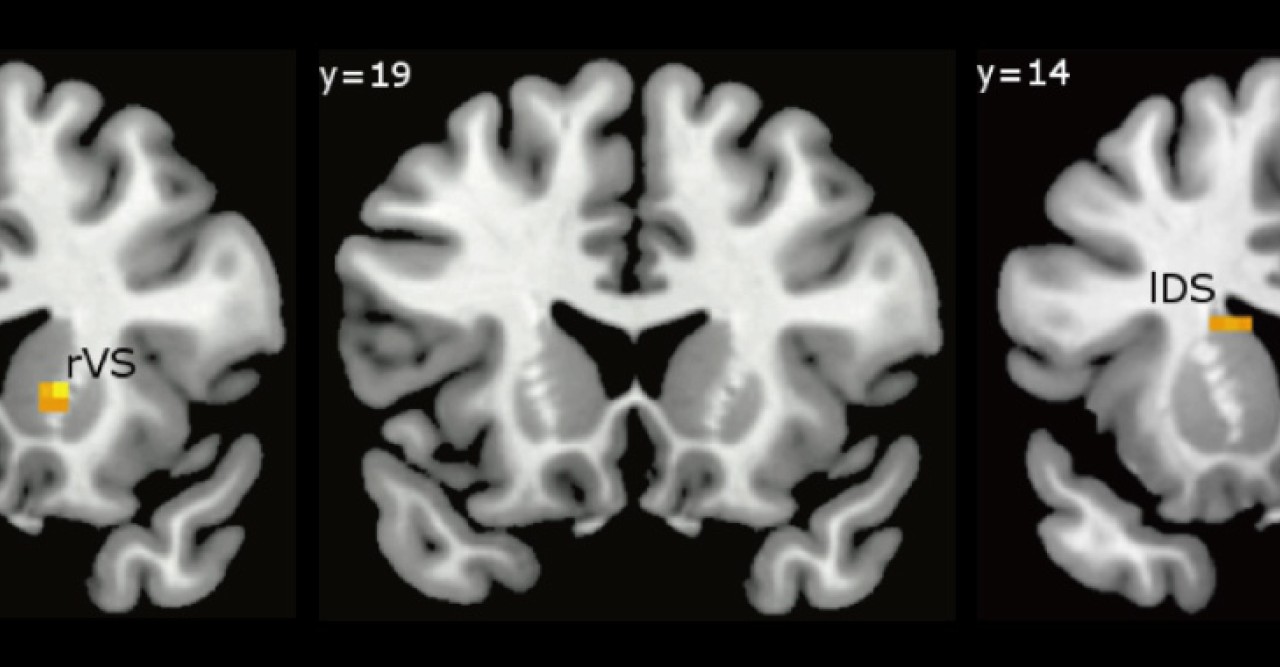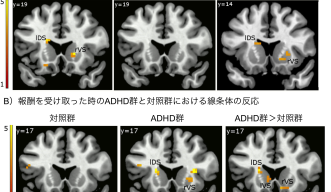Researching ADHD Across Continents and Disciplines

Investigating the neurobiological causes of attention deficit hyperactivity disorder (ADHD) will lead to effective new therapies for individuals with the disorder. This is the goal of Emi Furukawa, a member of the Human Developmental Neurobiology Unit, who recently published in PLOS ONE. Her findings shed light on what is happening in the brain of people with ADHD. Furukawa, OIST professors Gail Tripp and Jeff Wickens, along with Jorge Moll and Paulo Mattos and their neuroscience team at D’Or Institute of Research and Education (IDOR) in Rio de Janeiro have all combined their various expertise for the study. The work is truly a feat of international and cross-disciplinary collaboration in the different fields of psychiatry, neuroimaging and neurobiology. Considering approximately 5% of the population has ADHD, this type of collaborative work may lead to help for millions of people.
People with ADHD show altered sensitivity to rewards; for example, they seem to prefer small immediate rewards over larger delayed rewards. People normally learn to behave in ways that maximize the chances of obtaining positive outcomes. Their brain helps them wait and anticipate better future rewards by firing certain neurons. However, individuals with ADHD seem to have problems with this type of learning. A child with ADHD may fidget, poke a friend, switch activities, or look out of the window for something interesting, activities that lead to immediate rewards of excitement or attention from his/her friends or teacher. Whereas a child without ADHD is able to stay focused on schoolwork, anticipating future rewards, such as getting good grades or praise from parents. The neurobiological mechanism responsible for such altered reward sensitivity in ADHD is unknown, creating challenges for treatment.
The researchers were interested in differences in the brain responses of typically developing young adults and those with ADHD when they anticipate rewards and when they receive rewards. Previous research linked ADHD with dopamine, which is also involved in reward-related learning and behavior. Therefore, Furukawa and colleagues concentrated on an area of the brain known to have strong dopamine expression, the striatum. Using functional magnetic resonance imaging (fMRI), they saw that people with ADHD had different activity in this area of the brain in response to reward anticipation and reward delivery than those without the disorder. The adults with ADHD showed low activity during reward anticipation, but high activity upon delivery of reward. The typically developing adults showed the opposite pattern. This is the first study to report the alterations of brain responses to both anticipation and delivery of reward in ADHD.
The implications of this research are wide. The results suggest that in individuals with ADHD, the failure of dopamine release in response to reward anticipation, coupled with continued firings in response to reward delivery, lead to inattentive, hyperactive or impulsive behaviors. These are symptoms of ADHD that often result in immediate rewards. Furukawa says, “I believe our research helps advance the understanding of ADHD, which I hope will eventually lead to helping refine its treatment.”
Another success was the extensive collaboration between OIST researchers and institutes around the world. Furukawa says, “I was able to work with mentors and collaborators who were patient to teach me and really took time to discuss across disciplines. I believe this was possible only with the kind of support OIST is willing to provide for its researchers.”
This work was published in collaboration with D’Or Institute of Research and Education in Rio de Janeiro, Federal University of Rio de Janeiro, University of Otago in Dunedin, New Zealand, and VU University Amsterdam in Amsterdam, The Netherlands.
You can read Furukawa’s PLOS ONE article here:
http://www.plosone.org/article/info%3Adoi%2F10.1371%2Fjournal.pone.0089129
By: Kathleen Estes
Specialties
Research Unit
For press enquiries:
Press Inquiry Form
















